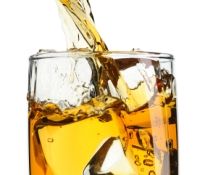

Scottish scientists have developed a method of producing biofuel from by-products of the whisky distilling process, which could be used to power cars and aviation. Researchers at Edinburgh Napier University claim it gives 30% more power output than the traditional biofuel ethanol.
The biofuel is produced from two whisky distilling process by-products, namely "pot ale" (the liquid from the copper stills) and "draff" (the spent grains). The £4 billion whisky industry produces copious quantities of both waste products each year, and the scientists say there is real potential for the biofuel to be available at local garage forecourts alongside traditional fuels within a few years.
Moreover, it can be used in conventional cars without having to adapt their engines. It could also be used to fuel planes and as the basis for chemicals such as acetone (an important solvent). The new biofuel production method is based on a 100-year-old process that was originally developed to produce butanol and acetone by fermenting sugar.
Project director, Professor Martin Tangney, said that using waste products was more environmentally sustainable than growing crops specifically to generate biofuel. He believes it can contribute significantly to EU targets for biofuels to account for 10% of total fuel sales by 2020.
Dr Richard Dixon, of WWF Scotland, welcomed the project observing, "The production of some biofuels can cause massive environmental damage to forests and wildlife. So whisky powered-cars could help Scotland avoid having to use those forest-trashing biofuels."
For more information, see: